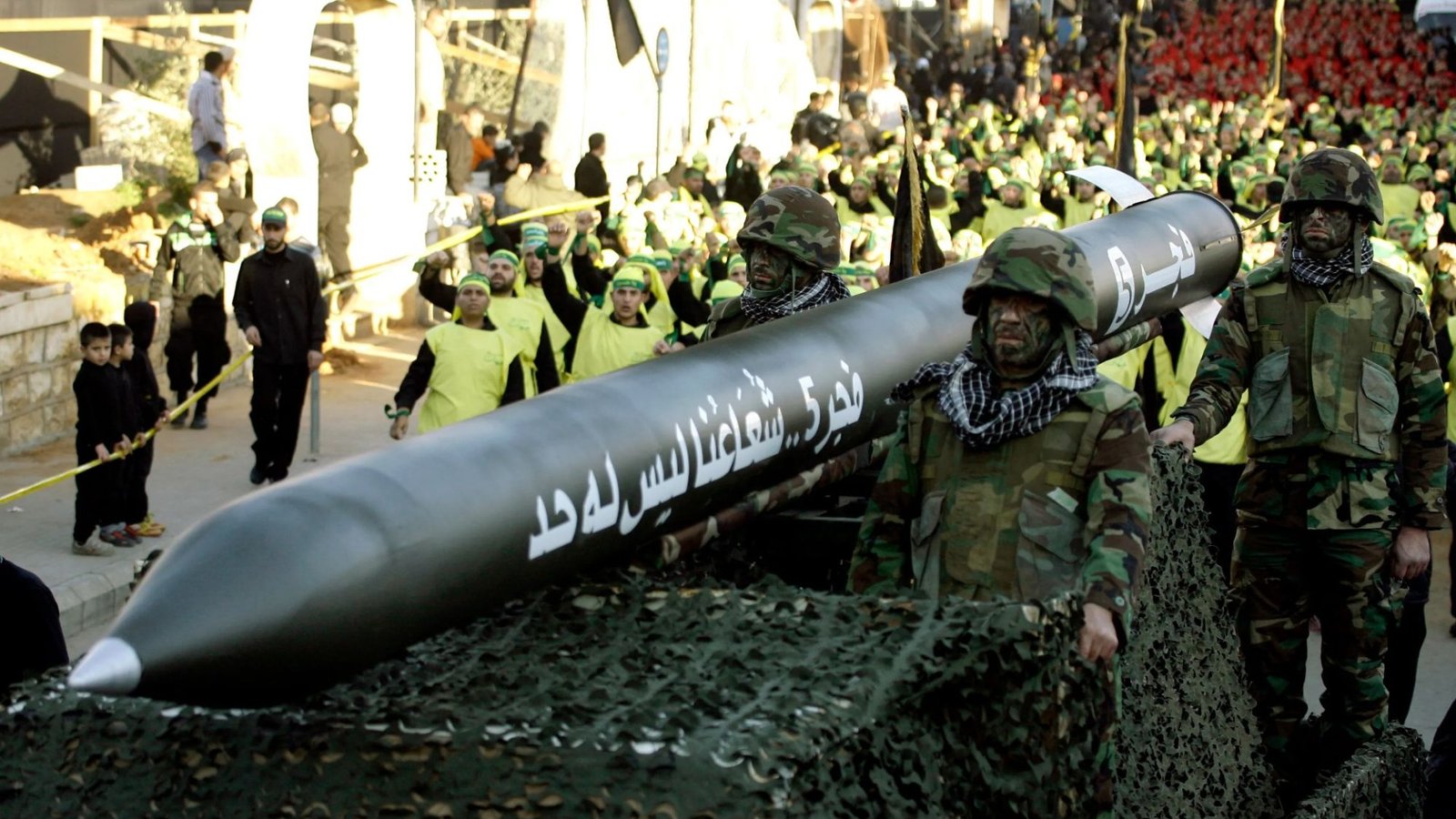
HEZBOLLAH is ready to launch a huge attack on Israel after a decade of evil plotting and building a miles-long tunnel network, experts have warned.
Analysts monitoring years of military activity in southern Lebanon warned that October 7 could soon look “like a picnic” if and when the Lebanese terrorists unleash hell.
Hezbollah’s tunnels are said to serve multiple purposes, including military operations, smuggling, and the storage of weapons.
A recent video posted by the terror group even revealed chilling snippets of hidden terror tunnel network from which missiles can be launched.
But the exact extent and current state of the underground networks are still not fully known to the public despite the eerie previews.
Lieutenant Colonel Sarit Zehavi, a former Israeli Defence Force intelligence analyst who has been studying Hezbollah for decades, told The Sun: “The risk has never been greater.
“Hezbollah has ten times the firepower of Hamas, with a total military force of 50,000 and up to 5,000 elite troops ready to storm across the border.
“They have built miles of tunnels connecting their forces and more attack tunnels to storm into Israel.
“They are cut into solid rock and bigger than the Hamas tunnels — some big enough to drive a truck through — with electric power and even air conditioning.
“But the biggest threat is posed by the sheer volume of their weapons arsenal. They have more than 200,000 rockets, guided missiles and drones.”
Lieutenant Colonel Zehavi fears that Hezbollah may now have enough weapons to overwhelm the Iron Dome and David’s Sling air defences, which protect Israeli towns and cities.
“And once their attack starts, it could go on for months — at the same time as others from Iran, Syria, Iraq, Yemen, and from Gaza and the West Bank inside Israel,” she said.
“All this is pointed towards us — we are already in a fight for our very existence.”
Zehavi — a mum-of-five who runs Israel’s Alma Research Centre studying the Hezbollah threat — has amassed huge files on the group through open-source online research.
Her work unearthed shocking footage which she says showed Hezbollah drew up the blueprint for the October 7 attacks ten years ago.
Video produced by the terror group simulated an attack by Hezbollah Radwan Force troops, who would storm across the border, killing and snatching hostages after fanning out across the north.
Zehavi told The Sun: “I watched video of the Hezbollah battle plan the day after October 7 and realised this was the template for what had just happened in the south.
“All of the detail was there, including instructions on taking hostages as human shields and causing maximum terror.
“Other plans included a mission to seize and hold territory and the conquest of the northern Galilee region.
“I realised then that their plan to carry out an October 7-style attack in the north had already been drawn up and was so shocked I immediately evacuated my family.
“Israel Defence Forces are in position across the border and will fight but the threat posed from the north is now huge.”
According to verified research, the Hezbollah invasion would be led by the group’s fanatical Radwan militants, who have battled in Syria’s civil war for years.
The potent unit will be nothing like the Hamas rabble who stormed out of Gaza on October 7, and it will pose a major challenge to Israel’s own crack troops.
The Radwan Force, whose troops wear a distinctive lion-and-sword emblem, was formed in the aftermath of Hezbollah’s last conflict with Israel in 2006 and has been trained and equipped by Iran.
Its fighters are the terror group’s fiercest and most fanatical members, having received training in hand-to-hand combat, sniper shooting, anti-tank warfare, bomb-making, and drone assaults.
Iran’s elite Revolutionary Guards “Sabeerin” commando unit instructors also train the force and subject them to rigorous tactical terrorist warfare drills.
The group’s video depicts heavily armed masked men raising their hands in prayer to Allah before advancing into clashes that burn down buildings and vehicles.
They will be at the forefront of the murders and hostage-takers dispatched across the border following huge rocket and mortar bombardment aimed at neutralising Israeli surveillance systems along the border.
Analysis also indicates that numerous Radwan fighters may go into Israel on motorcycles, like their Hamas counterparts did last year, but on a much larger scale.
Why have tensions in the Middle East suddenly spiked?
By Ellie Doughty, Foreign News Reporter
After almost 10 months of war in Gaza, tensions have hit an all new high following a series of deadly strikes and high-profile assassinations by Israel in late July and early August.
On Saturday July 27, a rocket strike fired from southern Lebanon hit a football pitch in Golan Heights – a Druze village occupied by Israel – killing 12 young people including children.
Israel and the US both said Hezbollah, the largest of Iran’s terror proxy groups, operating out of Lebanon, were responsible for the deadly strike.
On Monday July 28, the IDF dropped an airstrike on an area of Beirut, Lebanon’s capital, killing Hezbollah’s most senior military commander Fuad Shukr.
Less than two days later, at around 2am on Wednesday July 30, Israel killed Hamas’ top political leader Ismail Haniyeh as he slept in Iran’s capital Tehran.
Israel has yet to explicitly claim responsibility for the hit, but after vowing to take out all of Hamas last year, they are widely believed to be behind it.
US officials have also said they suspect Israel of being behind the assassination.
On the morning of Thursday August 1 morning the Israeli Defence Forces (IDF) announced that a strike on Khan Younis, southern Gaza, had killed Mohammed Deif on July 13.
Dief had worked as head of Hamas’ ruthless military wing, the al-Qassam brigades, since 2002.
It marked another major loss for Iran’s terror proxy groups in the region.
Early reports this week suggested Ismail Haniyeh was taken out in a precision strike, when a rocket was fired from a drone outside his window and detonated inside the room.
Then an investigation by the New York Times suggested a bomb had been planted in his room at the military-run compound where he was staying and detonated remotely.
Unnamed Iranian officials also shared the explosive theory with The Telegraph, further confusing the murky details around Haniyeh’s death.
The Iranian Revolutionary Guard Corps (IRGC), concluded its investigation into the humiliating security breach on Saturday August 1 and said he died after a “short-range projectile” was fired from outside the building.
A statement shared on Iranian state TV said a 7kg rocket warhead was used in the attack.
Iran and its proxy groups; Hamas in Gaza, Hezbollah in Lebanon and the Houthis in Yemen all vowed to seek revenge on Israel over the assassination of Haniyeh.
Then, on the night of Saturday August 3, Hezbollah fired some 30 rockets from Lebanon towards Galilee in northern Israel.
Tel Aviv’s impressive Iron Dome Defence system launched into action, destroying “most” of the missiles and no one was hurt.
But the UK, US and France have all urged their citizens to evacuate from Lebanon as fears of a wider war breaking out in the region continue to spiral.
HEZBOLLAH’S ‘MISSILE CITY’
Hezbollah has recently revealed its hidden terror tunnel network from which missiles can be launched in a chilling threat to Israel.
A blood-curdling video released by the Lebanese terrorists revealed giant underground roads with enough room for lorries to transport their deadly weapons.
Posters of leaders and soldiers adorn the tall stone walls as heavily armed men speed through the “missile city” in motorbikes.
Trucks loaded with enormous missiles make their way through the dark roads in a frightening glimpse of the terrorists’ arsenal.
Drone footage then shows the seemingly endless terror maze, which also appears to be home to military tech and computers.
In the video, the narrator says: “These targets are in our possession and its coordinates are in our hands.
“These missiles are placed, deployed, and focused on targets and in perfect secrecy.”
He added: “The resistance now possesses precision and non-precision missiles, along with weapons capabilities so that if Israel imposes a war on Lebanon, Israel will face a destiny and reality it didn’t expect any day.
“War with us extends across all of Palestine – from the Lebanese border to the Jordanian border to the Red Sea, from Qiryat Shemona to Eilat.”



















